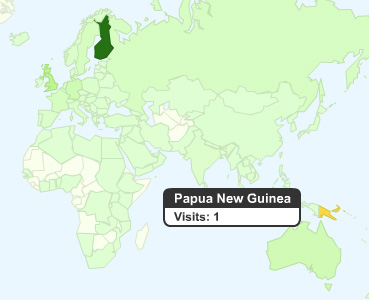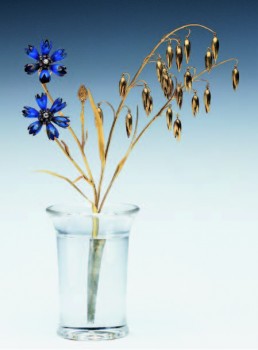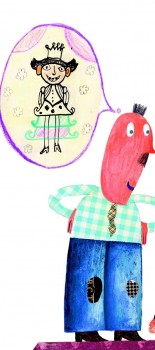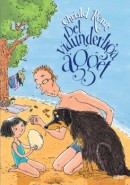Search results for "Aseguranzas para autos Pompano Beach FL llama ahora al 888-430-8975 Calcular valor de seguro automotor Buscador seguros auto La caja de seguros automotor Asegurar mi auto online Seguro basico para auto Corredor de seguros"
Seekers and givers of meaning: what the writer said
2 October 2014 | This 'n' that
 ‘All our tales, stories, and creative endeavours are stories about ourselves. We repeat the same tale throughout our lives, from the cradle to the grave.’ CA
‘All our tales, stories, and creative endeavours are stories about ourselves. We repeat the same tale throughout our lives, from the cradle to the grave.’ CA
‘Throughout a work’s journey, the writer filters meanings from the fog of symbols and connects things to one another in new ways. Thus, the writer is both a seeker of meaning and a giver of meaning.’ OJ
‘Words are behind locks and the key is lost. No one can seek out another uncritically except in poetry and love. When this happens the doors have opened by themselves.’ EK
‘I realised that I had to have the courage to write my kind of books, not books excessively quoting postmodern French philosophers, even if that meant laying myself open to accusations of nostalgia and sentimentality.’ KW
‘If we look at the writing process as consisting of three C:s – Craft, Creativity and Chaos – each one of them is in its way indispensable, but I would definitely go for chaos, for in chaos lies vision.’ MF
‘In the historical novel the line between the real and the imagined wavers like torchlight on a wall. The merging of fantasy and reality is one of the essential features of the historical novel.’ KU
‘The writer’s block isn’t emptiness. It’s more like a din inside your head, the screams of shame and fear and self-hatred echoing against one another. What right have I to have written anything in the first place? I have nothing to say!’ PT
‘…sometimes stanzas have to / assume the torch-bearer’s role – one / often avoided like the plague. / Resilient and infrangible, the lines have to / get on with their work, like a termite queen / laying an egg every three seconds / for twenty years, / leaving a human to notice / their integrity. ’ JI
In 2007 when Books from Finland was a printed journal, we began a series entitled On writing and not writing; in it, Finnish authors ponder the complexities, pros and cons of their profession. Now our digitised archives make these writings available to our online readers: how do Claes Andersson, Olli Jalonen, Eeva Kilpi, Kjell Westö, Monika Fagerholm, Kaari Utrio, Petri Tamminen and Jouni Inkala describe the process? Pain must coexist with pleasure…
From 2009 – when Books from Finland became an online journal – more writers have made their contributions: Alexandra Salmela, Susanne Ringell, Jyrki Kiiskinen, Johanna Sinisalo, Markku Pääskynen, Ilpo Tiihonen, Kristina Carlson, Tuomas Kyrö, Sirpa Kähkönen – the next, shortly, will be Jari Järvelä.
Dear Reader!
13 January 2011 | This 'n' that

Reading Books from Finland here, there and... Photo: Google Analytics
2011 is well underway, and it’s back to business – reporting on good books from Finland, that is!
The new year also marks the beginning of our third year online: we are very pleased to note that last year visits to this site increased by 187 per cent compared to 2009!
Our foreign readers hail from a total of 149 countries, although the majority are in the United States and the United Kingdom – with a surprisingly large number of neighbourly visits from readers in Finland.
There are some countries where only one reader has taken a look at Books from Finland last year; greetings to our own readers in Honduras and Papua New Guinea…. But, on the other hand, readership in Belarus has grown by 2.400 per cent, from just one in 2009 to a grand total of 25!
We’ve been very glad to have your online feedback, which prompted us to think that since we haven’t done a reader survey for a longish time, we might take the opportunity to run another one now – so we’ll be quizzing you about your views of the contents of the journal on this page soon.
We hope to offer you more that is diverting, entertaining and thought-provoking this year than ever before. Remember, you can also keep abreast of what’s going on on the Books from Finland website by subscribing to our RSS and e-mail delivery services (and we’re on Facebook, too).
Happy new year, and good reading!
The editors
Soila Lehtonen (Helsinki)
Hildi Hawkins (London)
Tchotchkes for the tsar
11 August 2011 | Reviews

Cornflower and ear of oats: one of the several Fabergé gemstone ornaments now owned by Queen Elizabeth of England (gold, rock crystal, diamonds, enamel, ca 18 cm)
Ulla Tillander-Godenhielm
Fabergén suomalaiset mestarit
[Fabergé’s Finnish masters]
Design: Jukka Aalto/Armadillo Graphics
Helsinki: Tammi, 2011. 271 p., ill.
ISBN 978-951-31-5878-1
€57, hardback
In its online shop, the Hermitage Museum in St Petersburg sells a copy of a most delicate, enchanting little nephrite-and-opal lily of the valley that perfectly imitates nature, sitting in a vase made of rock crystal that looks like a glass of water.
These small flowers made of gold and gemstones were manufactured by the jeweller Fabergé a hundred years ago. The lily of the valley was the most frequently used floral motif in the Fabergé workshops – it was the favourite flower of Empress Alexandra (1872–1918), and the imperial family was the the foremost client of the world’s foremost jeweller.
The replica (13.5 centimetres high) is available at the Hermitage as a ‘luxury gift’ for the price of mere $3,300. (N.B. Since we published this review, the ‘luxury gift’ items seem to have disappeared from the Hermitage online shop selection, so we have removed the link. Several Fabergé egg replicas are available though, ranging in price from $200 upwards – link below.)
For those who feel the price is excessive, there is also a rather modestly-priced little bay tree (original: gold, Siberian nephrite, diamonds, amethysts, pearls, citrines, agates and rubies as well as natural feathers, about 30 centimetres tall, featuring a little bird that emerges flapping its wings and singing when a small key is turned) at just $ 219,95. Despite its form, it is classified as one of the famous imperial Easter eggs. (However, as I write, this item is unfortunately sold out…) More…
Dear reader,
11 February 2009 | Letter from the Editors
welcome to the new Books from Finland website. After 42 years in print, we now navigate virtual worlds. However much Books from Finland may have changed in appearance, though, its essence remains the same – as always, we try to provide you with interesting, well-translated things to read. Made in Finland, or about Finland. More…
Archive news!
11 May 2012 | This 'n' that
We’re delighted to be able to announce that the selection of the material published on the web pages of Books from Finland in the last phase of its existence as a printed journal, 1998–2008, is now available on this website.
The monthly archive selection has been extended back to 1998, and more than two dozen new contributor details have been added. Plus, any term you enter in the search box at the top right of the webpage will now look through everything we have online – not just what has been published since we went digital in 2009. So if you vaguely remember a piece about xx, or just want to play games by seeing how often we’ve featured yy, just enter your term in the search box and away you go.
This is just the first step in our bigger project of digitising a broad selection of pieces from Books from Finland‘s history, from 1976 (when it began to appear as a quarterly journal) onwards. The Books from Finland archive – 132 printed issues were published from 1976 to 2008, featuring hundreds of authors – represents an unparalleled treasure trove of Finnish literature and literary debate in English, and we can’t wait to get as much as we can online.
It is a long, slow process, so don’t hold your breath… But as we add new pieces we’ll be flagging them up and drawing them to your attention, from classics to some real period pieces, sometimes with new introductions by contemporary writers.
Watch this space – please remember, good things are worth waiting for!
Second nature
15 February 2010 | Articles, Non-fiction
 We hear a lot about how the internet is going to transform the reading and the marketing of books. But what about the act of writing? Teemu Manninen reports from the frontline of a new generation of authors for whom life has always been digital
We hear a lot about how the internet is going to transform the reading and the marketing of books. But what about the act of writing? Teemu Manninen reports from the frontline of a new generation of authors for whom life has always been digital
When we think of the future of publishing in these times of electronic reading devices, audiobooks, and the internet, when it seems as if the whole material being of literature is about to be transformed, we may ask how the marketing of books will change.
What happens when publishing goes online? How will authors cope with the new culture of the internet? More…
The joy of work
24 October 2011 | Fiction, Prose
Short prose from Sivullisia (‘Outsiders’, Like, 2011). Introduction by Teppo Kulmala
Since I’ve been unemployed, I started a blog called Outsiders. It soon came to serve as work, and I became dependent on its benefits. Although describing being an outsider helped to anaesthetise me, and verbalising all of my afternoons didn’t even take up all my time, the feedback that came in was reward enough. I wouldn’t have taken any other reimbursement anyway because of the restrictions set on recipients of government benefits. Increasingly frequently I found myself longing for more. Even a short blog comment about being an outsider felt even truer than what I with my self-employed, jobless person’s competence was able to achieve in relation to being sidelined as an unemployed person, regardless of what kind of manager I had been in my previous life. When asking for more accounts of other people’s well-being, I wanted them to use their own names. I justified this because I did not want to read lies, which often come from and lead to chatter in cafés and on the web. Apart from the pure enjoyment of being present, using one’s own name – even in wrong-headed topics or notions – makes it easier to approach the harsh laws of the working world. When one knows that by using one’s own signature one is dragging one’s family into the mire, including those who have gone before and those yet to come, one is able to blaze trails along which one can outflank the passive to activate another, equally unemployed. I did not place any further requirements on the other commenters besides first name and surname, as the rules had been drawn up by professionals in their own field. The regulator’s work also requires skill, if not a tremendous craving, for damming up another flood of text so that one’s own advantages do not have a chance to dry up. To facilitate reading for myself and others, I introduced only a couple of restrictions, which I imagined that I, too, would be able to adhere to. Only one side of a sheet of A4 was to be used – that is, one page – and what people wrote had to be true. Truth, beauty and quality ensured that everyone would begin what they had to say by writing about their current work. More stories, anecdotes, even poems piled up than the law permits me to read – much less compile – during working hours. For this book I have selected only 157 stories from the Greater Helsinki area for the sake of efficiency. The faster you can read the work, the less time it will distract you from your main job. I chose to limit things to the capital area so that the stories about well-being from individuals linked to this place would seem to form a more integral work, or document at least, about what was happening in the Big H, the centre of the nation, at the start of the millennium. I will publish the tales of work from beyond the outer ring road at some later stage, if I manage to come to an agreement with the writers concerning intellectual property rights. More…
Brighter than darkness
30 June 2002 | Archives online, Fiction, Prose
An extract from the novel Eksyneet (‘The lost’, WSOY, 2001). Interview by Markus Määttänen
It was a white tiled wall. Too white. Sterile. He wondered how long he had been looking at it. In any case long enough to have forgotten it was a wall. It had changed into a vacuum opening up before him and then shrunk into a tunnel through whose irresistible suction he had hurtled toward the painful images of the past. The past. Yesterday. Almost yesterday. He had stared at the nocturnal entrance, clearly divided in two by the street lamps, and not just that, but now saw only a lifeless and, in its lifelessness, repellant wall. He sighed, rubbed his numb face, pushed himself off the floor and stood up.
Autumn’s child
17 November 2011 | Fiction, Prose
Extracts from Bo Carpelan’s novel Blad ur höstens arkiv. Tomas Skarfelts anteckningar (‘Leaves from autumn’s archive. The notes of Tomas Skarfelt’). Introduction by Clas Zilliacus
When I took my first walk here in Udda, along the road down to the end of the bay, my legs wanted to go left up to the forest, while I strove to walk straight ahead. It was an unsteadiness reminiscent of being slightly drunk. A slight vertigo I have already noticed before. Trees soughed through me and the water of the bay tasted almost like salt on my lips. All sorts of things try to pass straight through me nowadays. I am becoming a general store. The few people I know go there and choose, and I try to sell. Most of it is old memories with attendant dust. They are in no chronological order at all, and make involuntary, rapid leaps, like kangaroos. Even when I went to school they hopped around. They forced me to learn my lessons by heart. They continued to skip over me at university and added an extra complexity to my studies in general history: concentrate of reign lengths.
And if I followed my legs and gave not a damn about my dead straight road? Digressions from what was planned provided me later on with my best experiences, and coincidences were grains of gold. Improvisations were lucky throws, or disasters. Afterwards came the restrictions, the constructions, the architecture. Now only that squared-paper notebook remains with its pitfalls. The uncertainty is sometimes imperceptible, but is there: Am I not superfluous? Are not my legs somewhat irrational? More…
Once upon a time
27 February 2014 | Children's books, Fiction
 Stories from Kirahviäiti ja muita hölmöjä aikuisia (‘The giraffe mummy and other silly adults’, Teos, 2013), illustrated by Martina Matlovičová. Interview of Alexandra Salmela by Anna-Leena Ekroos
Stories from Kirahviäiti ja muita hölmöjä aikuisia (‘The giraffe mummy and other silly adults’, Teos, 2013), illustrated by Martina Matlovičová. Interview of Alexandra Salmela by Anna-Leena Ekroos
The monkey princess
Adalmiina’s life was not an easy one. Her parents decided to prepare her for her career as a princess when she was a little girl: when Adalmiina was three she was sent to ballet school, at four she started taking lute lessons and at five she went on a course in magic-mirror gazing.
When Adalmiina turned six, she received a giant suitcase full of princess clothes and shoes.
‘Put them on, darling, we want to see you in all your lovely beauty!’ her mother sparkled, waving a muslin veil.
‘I want to go to the jungle!’ Adalmiina demanded. ‘Without any clothes!’
‘Will we have to force you to dress in all your glory?’ her parents snapped.
‘You’ll have to catch me first!’ Adalmiina announced, running into the garden. More…
Christel Rönns: Det vidunderliga ägget [A most extraordinary egg]
24 January 2013 | Mini reviews, Reviews
 Det vidunderliga ägget
Det vidunderliga ägget
[A most extraordinary egg]
Kuvitus [Ill. by]: Christel Rönns
Helsingfors: Söderströms / Stockholm: Bonnier Carlsen Bokförlag, 2012. 32 p., ill.
ISBN 978-91-638-6857-3
€16.90, hardback
Finnish edition:
Perin erikoinen muna
Suom. [Translated by] Mirjam Ilvas
Helsinki: Tammi, 2012. 30 p., ill.
ISBN 978-951-523-183-3
€15.90, hardback
This is the third work that the graphic designer and illustrator Christel Rönns (born 1960) has written in her own right. With her relaxed and humorous illustration style, Rönns has provided the visual component of some 60 children’s books. This story portrays a family – parents, two little girls and a dog (the author has dedicated her book to the memory of her hovawart dog Freja who died at 14). One summer’s day they find a large egg on the beach and bring it home. But the egg, dropped by accident, reveals a little four-legged creature: named Koi-Koi, it turns out to be delightfully friendly and playful. Nobody actually knows what it is – not even a professor of zoology – but it eats and grows to an enormous size, so the house becomes very cramped (and Koi-Koi’s massive farts send the family running…). But then Koi-Koi begins to disappear at night, and one day he doesn’t come back. Missing a lost pet is a new feeling for the girls (their parents must be secretly relieved, as must the dog!). The story is both funny and gently melancholy, the illustrations detailed and humorous. The book was awarded the Finlandia Junior Prize in 2012.
Pop song lyrics
A ‘short special’: a previously unpublished text (written in the 1960s) from Luonnonkierto (‘Nature’s circle’, Siltala, 2012). Introduction by Jarmo Papinniemi
The pop song is a wide, mysterious world. It is like an ocean. Like a snow-covered desert. Like a rose garden. Like a perfume factory. The pop song is as mysterious as spring. The pop song is as whimsical as the restroom of the city hotel in Samarkand. The pop song is as coarse as your father’s eldest brother. Pop songs snag everyone, especially the young and the old. The best pop songs are foreign, because the words make no sense. Pop stars rise into the sky. Lovely young women step into the arena smelling of perfume and sing about love or tell playful stories about animals or nursery rooms. And then on the other end of life the stars go out and start to look for a place to be buried. But before dying they drone on in their gruff voices about the temptations of the big city, and love, which in a certain sense tortured and wore out those concerned…
Up here in Finland, we write and set pop songs to music as well. But I have to say that they aren’t any good. We also translate and water down a lot of foreign hits as well. Well, of course they’re all popular and people hum them in parishes in the city and in the country, but from a critical perspective they stink. Usually the weak point of a pop song is its execrable lyrics. More…
Original Inhabitant
31 December 1995 | Archives online, Fiction, poetry
Poems from Kuka puhuu (‘Who’s speaking’, Otava, 1994). Introduction by Tero Liukkonen
They lie in the flurrying snow, languid as a naked woman taking a shower,
the mountains, their luscious thighs ajar; under snow-white skin,
confident rib-tongues curve down to the gully
where a lone skier slides and struggles in unbroken snow
A dense stand of spruce grows from her thighs, moonlight
shimmers on her flank, her hair is green
A hundred miles long, face hidden under the covers, out of the smoke
droplets emerge
slow is her breath in the wind, waiting for spring, under the snow
No one can conquer that vision, move it, bury it,
stitch it shut
she has come without being invited, living rooms grow inside her,
mice rub their whiskers in her hiding places,
obedient, the sun sets behind her, opens the dark door More…
Cause of death
30 June 1999 | Archives online, Fiction, Prose
A short story from Åtta kroppar (‘Eight bodies’, Söderströms, 1998). Introduction by Ann-Christine Snickars
It was a bailer, a blue one. There they were, he, she, the bailer and a stormtossed net on the stern board of a hired boat. The boat had come with the cottage and the cottage with ‘Autumn archipelago package. Now nature is aglow.’
And it was aglow.
Masses of foliage and apples, damson and shiny russula spread out around them in all their glory. It happened everywhere, that glowing. Wherever one turned one’s gaze there was something ready to be picked or ready to fall, ready in general. Those first days they had, at least to each other, she to him, feigned enthusiasm about all this ripe richness, but that time was over.
Their time of fire and flames was over. More…
New from the archives
11 May 2015 | This 'n' that

Juhani Peltonen. Photo: C-G Hagström / WSOY.
This week’s pick is, like last week’s, a period piece – this time a cry for help from the 1980s in the work of Juhani Peltonen (1941-1998).
Like Runar Schildt’s short story Raketen, written shortly before Finland gained independence from Russia and was almost immediately plunged into civil war, these pieces by the multitalented Juhani Peltonen, who wrote plays for stage and radio as well as short stories, novels and poems, were published shortly before major and irrevocable change.
In the short story ‘The Blinking Doll’, we are a year short of the fall of the Berlin Wall, and it seems as if things are never going to change. We follow two forty-year-old lawyers, Juutinen and Multikka, as they trudge along the beach in one of the charming resort towns of the west coast in which they have spent a couple of days dealing with a minor felony case.
They’re both forty, and divorced, disillusioned with their jobs and with the world; and both are infatuated with one of their colleagues, a woman whom they call ‘The Blinking Doll’.
There is, Peltonen says, a ‘pact of friendship and mutual assistance between the men’ – a jocular reference to the notorious treaty of 1948 in which Finland was obliged to resist attacks on the Soviet Union through its territory, and to ask for Soviet aid if necessary. In 1988, this seemed as if it were written in stone – and the men’s emotional lives are similarly petrified. They discuss their isolation, their lack of purpose, their inexplicable weeping fits. The most painful thing, says Multikka, is love; or, says Juutinen, and which comes to the same thing, the lack of it.
As Erkka Lehtola, our then Editor-in-Chief, remarks in his introduction, Peltonen – Finnish literature’s best-known comi-tragedian, he calls him – focuses on the difficulty of loving in a violent, mechanical, oppressed world. Is it the passage of twenty-five years that imbues his writing with such a poignant sense of stasis and futility? There is a sense of desperation, barely controlled. As one of his poems has it,
Too abundant in the course of the evening
Cries for help from the heart of stifled detail, legato.
![]()
The Books from Finland digitisation project continues, with a total of 388 articles and book extracts made available on our website so far. Each week, we bring a newly digitised text to your attention.

